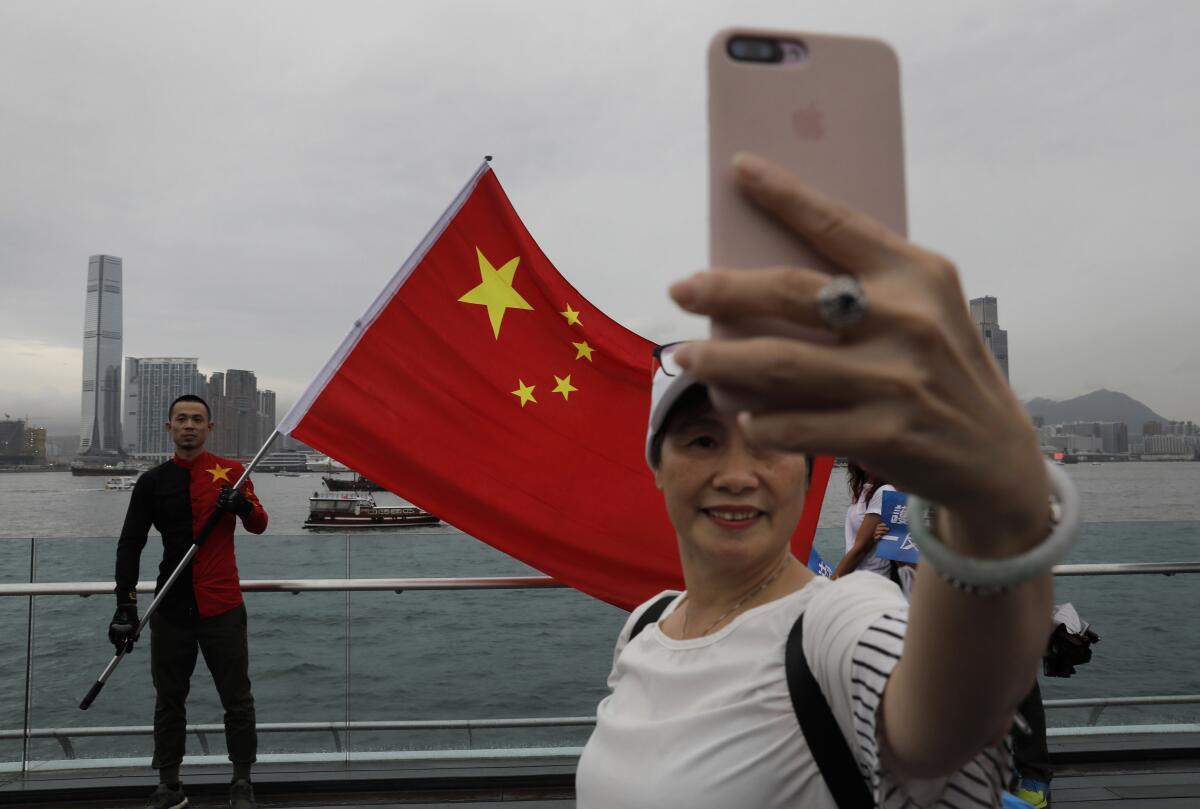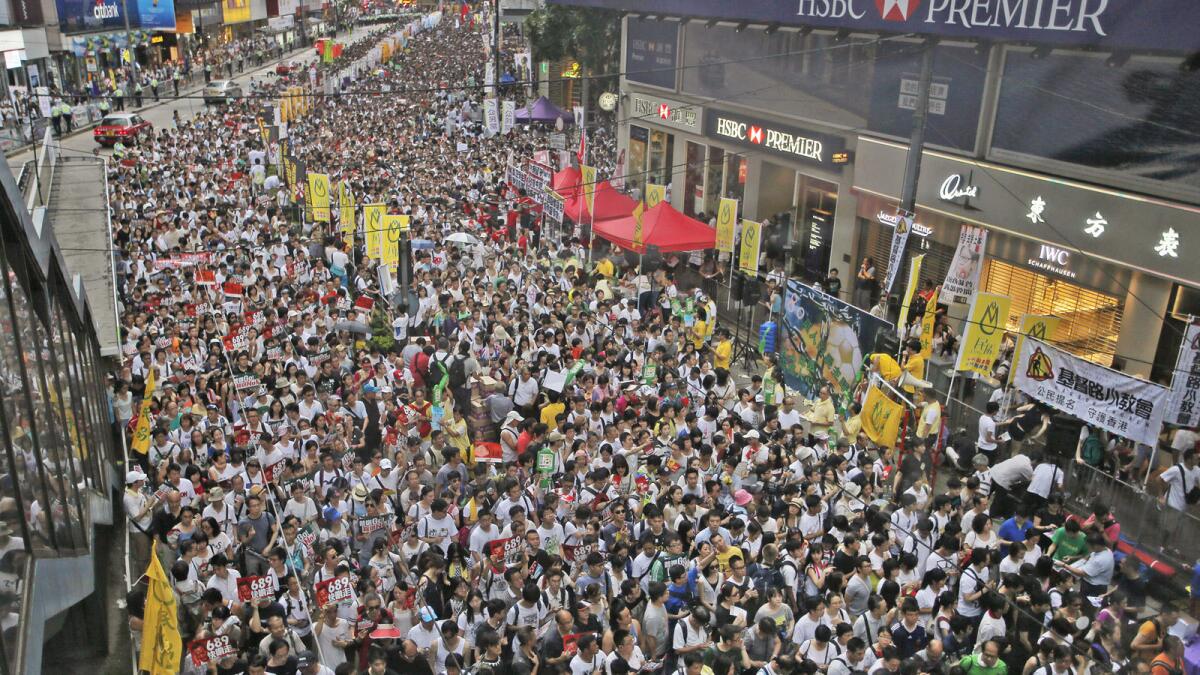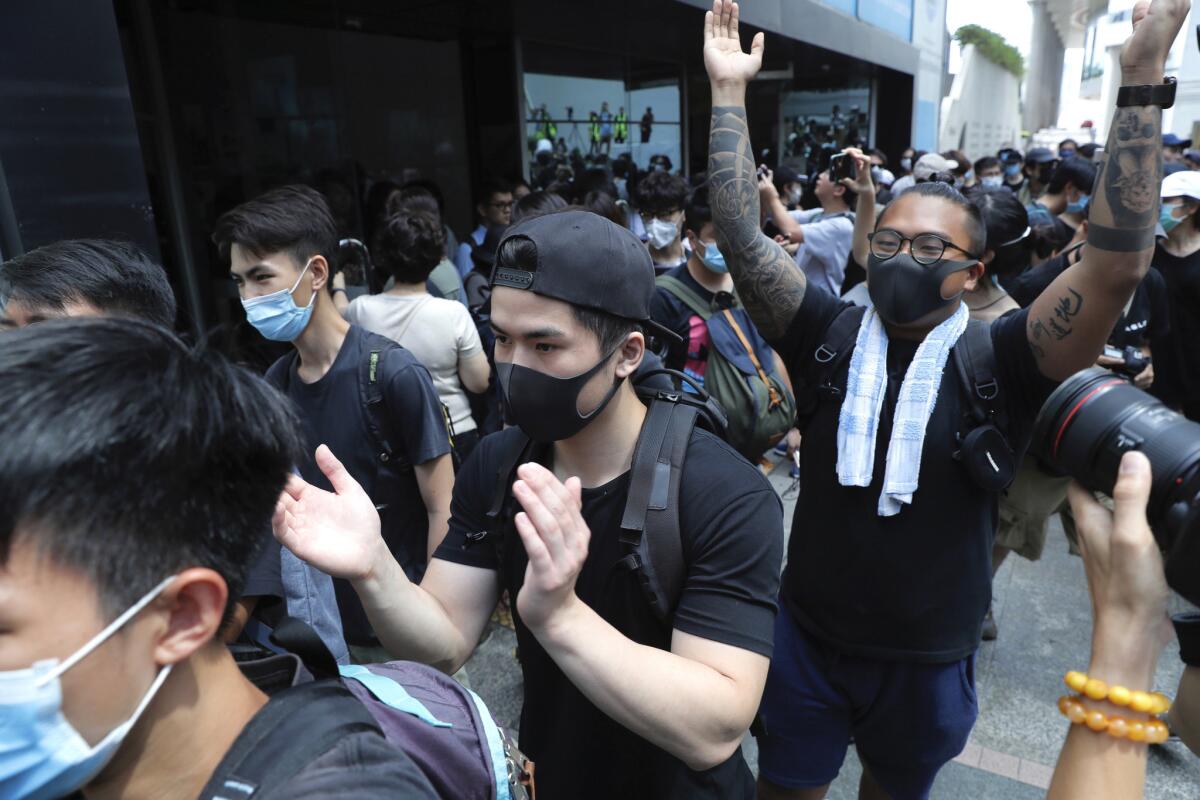We tried to contact China users blocked by Twitter and Facebook. Here’s who wrote back

He said he is 30, the father of one child, and loves Chinese poetry, literature and the guqin, a seven-stringed traditional instrument dating back thousands of years.
On social media, he is Ou Lu Wang Ji, the name of a famous piece of guqin music about a fisherman and a flock of seagulls.
He is also among the hundreds of people in China whose Twitter or Facebook accounts were suspended this week after the platforms said they had discovered a Chinese government-backed network engaged in a propaganda campaign against Hong Kong’s protest movement.
“My Facebook account was blocked,” Ou Lu Wang Ji, who declined to give his real name, said in an interview over a Chinese messaging app. “All I did was to post content against the mobs and supporting Hong Kong police.”
He called himself a “Chinese patriot” but denied that he is a government-sponsored troll or part of any coordinated effort.
The crackdown began Monday, when Twitter announced it had suspended 936 accounts originating in China for “deliberately and specifically attempting to sow political discord in Hong Kong” as part of a “coordinated state-backed campaign.”
Facebook soon followed, removing seven pages, five accounts and three groups engaged in “coordinated inauthentic behavior” that originated in mainland China and targeted the Hong Kong protests.
The suspended accounts all used virtual private networks, which are illegal in China, to get around China’s ban on Twitter and Facebook.
Like many of the other blocked users, Ou Lu Wang Ji is a member of a nationalist forum on a Reddit-style Chinese message board called Diba, hosted by China’s internet giant Baidu.
A red banner across the top of the forum reads, “Hong Kong is part of China forever,” in gold lettering in English text and Mandarin characters.
“Diba netizens are simply a generic name for patriotic youth, and the things we do are purely spontaneous, organized by a group of young people from all over the place,” he said. “Any patriotic youth would have the same opinions as us.”
The Times sent messages to 20 Diba users, most of whom declined to comment or responded with a single line.
“We are a group of patriotic youth,” was all one, Nan Yi, would say.
“It’s very tight right now,” said another, A Lie, referring to the Twitter crackdown. “I suggest you ask others but they will turn you down too.”
Pro-mainland China posts on Twitter and Facebook depict the Hong Kong protesters as cockroaches, dogs and zombies. The Facebook pages of protest organizers have been flooded with nationalist pro-Beijing posts in what appeared to be coordinated attacks.
The move by Twitter and Facebook provoked outrage in mainland China, where netizens accused the U.S. social media giants of “shameful hypocrisy.”
“So far, the Western style of freedom and democracy is like a dog’s fart,” a reader of the state-run People’s Daily posted in the comments section of an article. “Patriotism is my only belief.”
“This Hong Kong independence incident made me realize that freedom of speech is nothing but a joke. Thank you for making us Chinese even more united!” another wrote. “Foreign anti-China forces have never stopped wanting China to fail. They are so afraid of China getting stronger and stronger.”

The Hong Kong protest movement has drawn millions of demonstrators into the streets since it began in June.
It started as an uprising against a bill that would have allowed extradition of criminal suspects to mainland China. That bill has been suspended, though not withdrawn.
The demands of the demonstrators have expanded to include an independent inquiry into police violence, a retraction of rioting and other charges against protesters, universal suffrage and the resignation of Hong Kong Chief Executive Carrie Lam.
Hong Kong authorities have fought back with increasingly tough tactics, including firing tear gas indoors and deploying undercover police dressed as protesters. As tensions have risen, some protesters have abandoned the movement’s peaceful roots, such as when they attacked police and assaulted two mainland Chinese men.
Some of the accounts suspended by Twitter masqueraded as news websites, including Dream News and @HKpolitcalnew, according to Twitter, which posted details of the accounts and the tweets.
Many of the suspended Twitter accounts had been dormant for years before springing to life with tweets opposed to the Hong Kong protest. Some had earlier been used to promote products including hot tubs, bacon and boots — as well as politicians — before falling silent.
One of the suspended accounts, @saydullos1d, originated in Cottonwood, Colo., in 2013 and gained a following of 21,000 by retweeting about deer hunting and fishing without anyone ever liking, retweeting or interacting with the account’s retweets.
Starting in 2018, the account began tweeting only in Chinese, mainly retweeting news from Chinese news sites.
Then in June, it began tweeting posts that were critical of the protesters and supportive of Hong Kong police and authorities.
China has been making a concerted effort to discredit the Hong Kong protest movement, characterizing it as violent and led by shadowy foreign “black hands.”

On Wednesday, The Times and other Western media outlets received a letter from Hua Chunying, director general of the information department for the Chinese Ministry of Foreign Affairs, accusing the protesters of “radical, violent and criminal behaviors” that “have gone far beyond freedom of speech and peaceful assembly.”
“What’s worse, there is quite a lot of evidence showing that some forces of the United States have directly engaged in planning, organizing and inciting violent demonstrations in Hong Kong,” the letter said.
The main support for that claim was a 41-page statement accusing the National Endowment for Democracy, a U.S. group that has offered grants to civil society and pro-democracy projects around the world, of backing the protest movement financially.
The organization’s website lists donations to both Hong Kong and mainland China.
The government’s propaganda efforts also appear to include an effort to boost the social media following of at least one Chinese news website, the state-owned China News Service.
According to the website of the China Government Procurement Service Information Platform, on Aug. 16 the Chinese government awarded a $178,400 contract to a Beijing firm, One Sight Technology, to used artificial-intelligence marketing to get the news site 580,000 more followers on Twitter, Facebook and other platforms.
One Sight planned to target the United States, Australia and New Zealand and other countries with big Chinese diasporas, the contract said.
Buying followers or manipulating information is against Twitter’s terms of service, although the practice is widespread in the U.S. and elsewhere.
More to Read
Start your day right
Sign up for Essential California for news, features and recommendations from the L.A. Times and beyond in your inbox six days a week.
You may occasionally receive promotional content from the Los Angeles Times.






